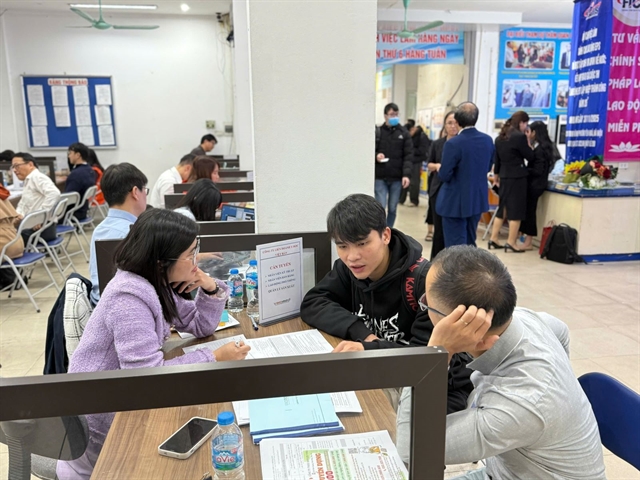 Society
Society

Deputy Prime Minister Vương Đình Huệ yesterday said preferential loans were needed for co-operatives to develop in a sustainable manner and in line with value chain.
 |
| Deputy Prime Minister Vương Đình Huệ delivers speech at a meeting with leaders of the Việt Nam Co-operative Alliance (VCA) yesterday. — Photo tienphong.vn |
HÀ NỘI — Deputy Prime Minister Vương Đình Huệ yesterday said preferential loans were needed for co-operatives to develop in a sustainable manner and in line with value chains.
“Involved ministries, agencies and localities arranged funding to boost the collective economic sector, particularly co-operatives,” Huệ said at the meeting with leaders of the Việt Nam Co-operative Alliance (VCA) yesterday.
He said that Việt Nam had policies that supported co-operatives, which were regulated in laws, Government decisions and directives, but the policies had failed to bring the expected impact in reality.
For example, 18 out of 64 cities and provinces across the country did not establish a credit guarantee fund. Or according to the Party Central Committee’s Economic Commission, none of more than 20,000 co-operatives nationwide accessed the maximum loan for co-operatives, VNĐ500 million (US$22,400).
Huệ said that only ten per cent of co-operatives paid proper attention to seek markets or output for their products, while the other 90 per cent concentrated too much on production, without tightening links to the market.
The Deputy PM asked the Ministry of Planning and Investment to review and identify causes for the improper production-consumption link.
“Lack of resources, impractical policies or poor implementation, which should be blamed for the modest performance of co-operatives?” Huệ asked.
Chairman of the VCA Võ Kim Cự said that 13 million households with more than 30 million labourers were joined in over 150,000 groups and 20,000 co-operatives.
By July 1, more than 9,000 co-operatives had re-registered, the qualification criteria for a co-operative as defined in a new Law on Co-operatives that the National Assembly approved in 2012.
Many previous co-operatives failed to shift to the “new-style” of co-operative because of financial problems or debts.
Cự said that the Government’s policies for co-operatives had failed to catch up with reality and were not systematic.
For example, co-operatives in 18 provinces are under the supervision of Planning and Investment Departments, in another 13 province they are under supervision of the Việt Nam Co-operative Alliance, while in other provinces, no agency is directly in charge of co-operatives’ operations.
Local authorities paid modest care to boost the development of co-operatives, he said. — VNS




